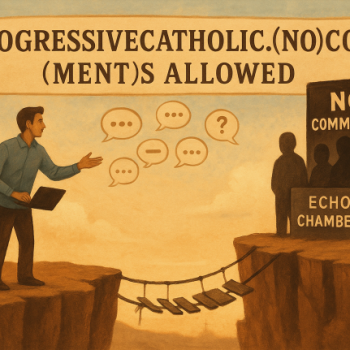BREEZEY REVIEW OF TGF IN THE ST. PETERSBURG TIMES
Famous people ask eternal questions
By MARGO HAMMOND, Times Staff Writer
Published March 19, 2006
The God Factor: Inside the Spiritual Lives of Public People by Cathleen Falsani Farrar
Straus & Giroux, $24, 269 pp
The premise is simple. Ask celebrities about their faith: What was the faith you were raised to believe? What is your religious affiliation now? Where do you go to pray?
Leaving it at that, however, wouldn’t have been enough for Cathleen Falsani, who covers the “God beat” for the Chicago Sun-Times. Labels, she rightly points out, can be so misleading.
“In our mainstream media, little of what we learn about the beliefs of public figures goes beyond labels – this actor’s a Catholic, that one’s a Buddhist. But labels don’t mean a damn thing,” she writes in her introduction to The God Factor. “They offer little information about how a public person’s private beliefs might affect his or her life, and, in turn, shape the world in which the rest of us live.”
So Falsani digs deeper, finding out just how these famous names factor in – or don’t factor in – God in their lives. The results are 31 very unusual “spiritual” profiles in which famous names – including novelists Anne Rice (Roman Catholic), Tom Robbins (cosmic lounge lizard), and Jonathan Safran Foer (“not particularly practicing” Jewish); basketball player Hakeem Olajuwon (Muslim); filmmaker David Lynch (nothing in particular); U.S. Sen. Barack Obama (Christian); and Bush speechwriter Michael Gerson (Episcopalian) – bare their souls.
She begins, appropriately, with an interview with Irish rock star and activist Bono. Appropriate because it was while listening to a U2 album (Bono is the group’s lead singer) when she was 12 years old that she discovered faith was not confined between the walls of churches, mosques and synagogues.
Now it seems all the people Falsani meets – even atheists – “enliven and enrich” her own faith. God obviously does work in mysterious ways.
Not that Bono is an atheist. Far from it. Raised in a Catholic country (Ireland) by a Protestant mother and a Catholic father, Bono says he aspires to be a Christian. “It’s a badge I want to wear,” he tells Falsani. “But I’m not a very good advertisement for God.” Still, as Falsani points out, his songs are filled with biblical allusions and, through his campaign to aid the victims of AIDS in Africa, he pricks the conscience of people worldwide.
As an interviewer, the sometimes self-deprecating, clearly charming Falsani must be disarming. Who else would get attorney Barry Scheck, whom most of us associate with the O.J. Simpson trial, to talk about the house fire that killed his 7-year-old sister when he was 10? Scheck, who went to Hebrew school and now calls himself a secular humanist, tells Falsani he “doesn’t believe in God . . . I’m a believer in science – you ultimately have to come back to some kind of humanitarian position where man, writ large, creates values for himself.” He also believes in justice, and has spent a lifetime taking on wrongful conviction cases. “Guilt and innocence. Damnation and forgiveness. Good and evil,” Falsani muses. “They are spiritual ideas, certainly, and play a key role in Scheck’s lifework.”
Even her interview with Hugh Hefner, surely not the first name that would pop into most minds when they think of the “God beat,” turns into a “truly spiritual afternoon” (Hefner’s words). Among Falsani’s startling discoveries about the spiritual life of the founder of Playboy:
– Back in the ’60s, he was involved with the civil rights movement and spent time with clergymen, including Jesse Jackson, talking about theology and morality.
– When he prays, which isn’t often, his conversation with God is: “Thank you, Lord.”
– Some of his most spiritual moments involve walking through the forest. “It touches you in places that are hidden, that are from very early childhood, that are hurts, yearnings, and those are wonderful, magical, spiritual moments,” says Hefner.
– Love is the highest moral value.
In other words, there doesn’t seem to be a celebrity Falsani has met from whom she can’t glean some spiritual advice. In fact, in the afterword to The God Factor, she thanks all her profiled subjects, listing 32 bits of insight “into the world and the divine” that she has taken away from them – whether they were Baptists or Buddhists. Before reading the profiles, it would be interesting to see if you could guess which interview subject was responsible for which quote: “Grace is the oxygen of religious life. Without it, religion will surely suffocate you;” “Facts are what happened and how it happened. Truth is an opinion;” “Death has little meaning if you haven’t lived;” “The door of repentance is always open;” “The essence of the spirit is love;” and “It can’t hurt to have something that’s keeping away bad vibes.” Chances are, even after reading the book, you wouldn’t get them all right.
And that is Falsani’s point – her deeper premise in The God’s Factor. Every one of us has a spiritual life, even if we only label ourselves, like singer Melissa Ethridge, “a seeker.” “I do believe in the part of the human being that is kind and good and willing to help,” says forensic scientist Dr. Henry Lee, who describes himself as a former Buddhist. “If we one day lose that belief, it will be the dark age of the world, of humankind. You have to have that belief.”
Amen to that.















